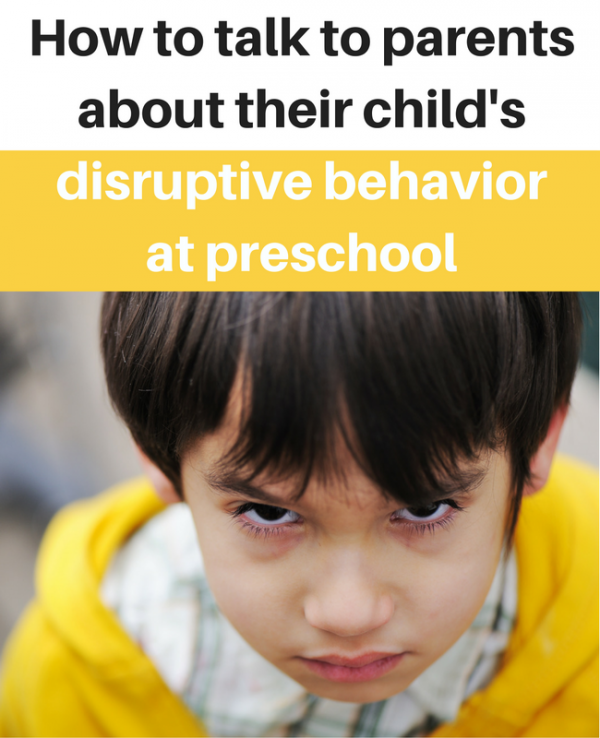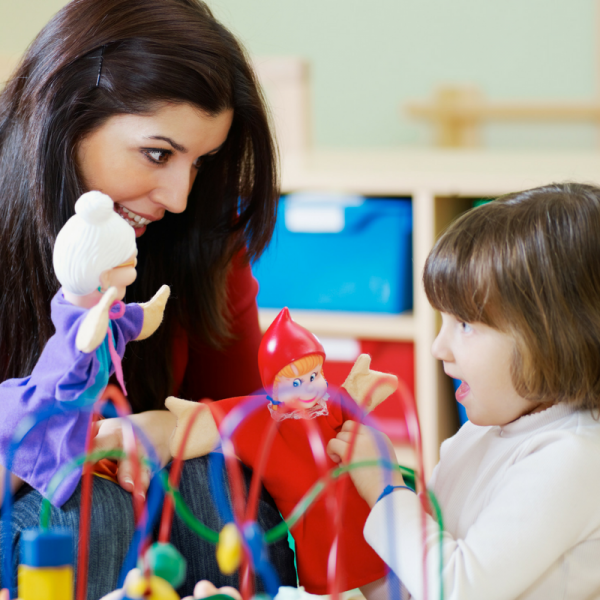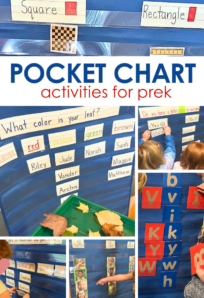 This is never an easy chat to have. Telling a parent that their child has had disruptive behavior at preschool, hurt another student or a teacher is a tough conversation for any teacher new or experienced. This is probably one of the most frequent questions that show up in my inbox from teachers. I think I was good at handling this as a new teacher but once I became a parent and a parent of a child who could be disruptive and have undesirable behavior at school I got much better. Here are my tips for how to handle telling parents about their child’s behavior challenges and more importantly how to keep working as a team.
This is never an easy chat to have. Telling a parent that their child has had disruptive behavior at preschool, hurt another student or a teacher is a tough conversation for any teacher new or experienced. This is probably one of the most frequent questions that show up in my inbox from teachers. I think I was good at handling this as a new teacher but once I became a parent and a parent of a child who could be disruptive and have undesirable behavior at school I got much better. Here are my tips for how to handle telling parents about their child’s behavior challenges and more importantly how to keep working as a team.
- Have realistic behavior expectations and ideally before school starts, at an open house or parent meeting share those expectations with the parents. Ask if the parents think there may be challenges for their child and explain that you expect young children to test boundaries, and depending on what is going on in their lives have challenging behaviors from time to time.

- Create a relationship with parents based on teamwork from day one. Ask that when there are any major or even minor changes at home to share them with you so you can be more accommodating and prepared for behavior shifts. Grief, anxiety, and many other big emotions often display as misbehavior in young children, if teachers know that a child’s dog died, or that Mom is going away for a week long business trip we can be more prepared and honestly usually more patient too.

- Lead with love. I don’t think I am the only teacher who can say that I love all my students. I have taught hundreds of preschoolers, and I have loved each one, even the ones who left me bruised, especially the ones who left me bruised, they needed it the most. Show parents how much you love their child before you share the negative. If you don’t love them, fake it. Yep, I said fake it. No parent wants to feel like a teacher is done with their kid, no parent will continue to work as a team with a teacher who has no desire to fix the problem and wants the parents to fix their problem, i.e., their child. Attacking the problem like this only makes parents get defensive. Want to see a Mama Bear? Make the mom feel like you don’t like her child. If you are feeling done with a child who has consistently tested your patience take more time and build that relationship, it will pay off. A struggling child needs support at home and school, and it is our job as teachers to be the bridge.
- When you do have to chat with the parent, do so privately. Call the parent after school or ask if they have a few minutes after class to speak without the child present. Children hear what we say about them and while I would hope all teachers and parents would be respectful hearing this conversation isn’t always in the child’s best interest. Of course, you will address any misbehavior with the child, but this is a conversation for the adults. The other thing to remember is that many parents feel embarrassed and even ashamed of their child’s misbehavior, sharing their child’s most recent slip up in front of other parents can be devastating for some. In turn that doesn’t help the child as it can create more anxiety in the parent and make them hypersensitive about their child’s behavior. I have been that parent worried about what a teacher might say about my child, worried about what other parents think. As a teacher, I try my best to protect and support the parents and children in my care because it benefits us all.

- Attack every problem as a team. Parents are not the enemy, neither are teachers. Ask for suggestions, ask for what works at home and listen to these suggestions. Will every suggestion work? Probably not but it will hopefully give you great insight into the family and child. Insights can help to spark new ideas for solutions to the challenging behaviors.
- Communicate often sharing the good as much as possible. It can be as simple as a thumbs up. Give the parents positive feedback about behavior and choices that they can use to praise their child. Ending rough days on high notes is always something I have strived for with my students and giving parents something positive to take home builds that bridge we need to work together as a team. Remember a parent who knows you love their child will be a lot more open to hearing how their child is struggling than one who thinks you just don’t like their son or daughter.
Do you have any tips to add? Share in comments or on No Time For Flash Cards Facebook page!



Jill says
This is a well written post. It’s so true, sometimes the kids who are the most challenging are the ones you end up loving the most because you invest so much time and energy into helping them. Building a relationship with the child is so important, while offering respect and support to the family is a must. I also agree that a team approach between home and school is key. Maintaining a positive attitude helps so that together we can help a child move forward.
Jenna Thomas says
I have a child who kicks and hits students and teachers including me. It seems to be anxiety. We have talked to the parents about his misbehavior but they don’t seem interested. How could I ask them what they do and if there are problems at home? Can you give examples of what to say to parents? I can usually calm him down with deflection but he is loud, disruptive, angry, and violent. I am just the TA and the teacher had a meeting with the parents but they only were concerned about his food habits, not his behavior!
Allison McDonald says
Jenna – I emailed you!